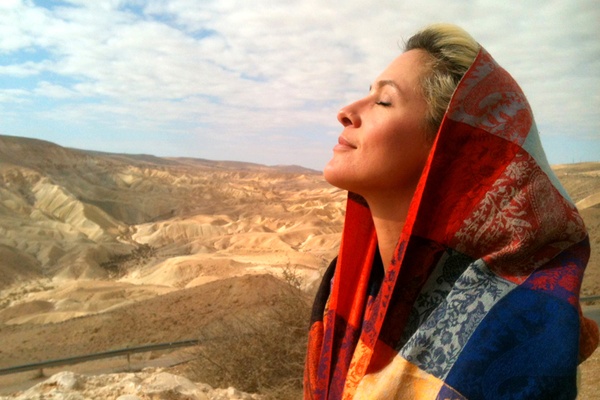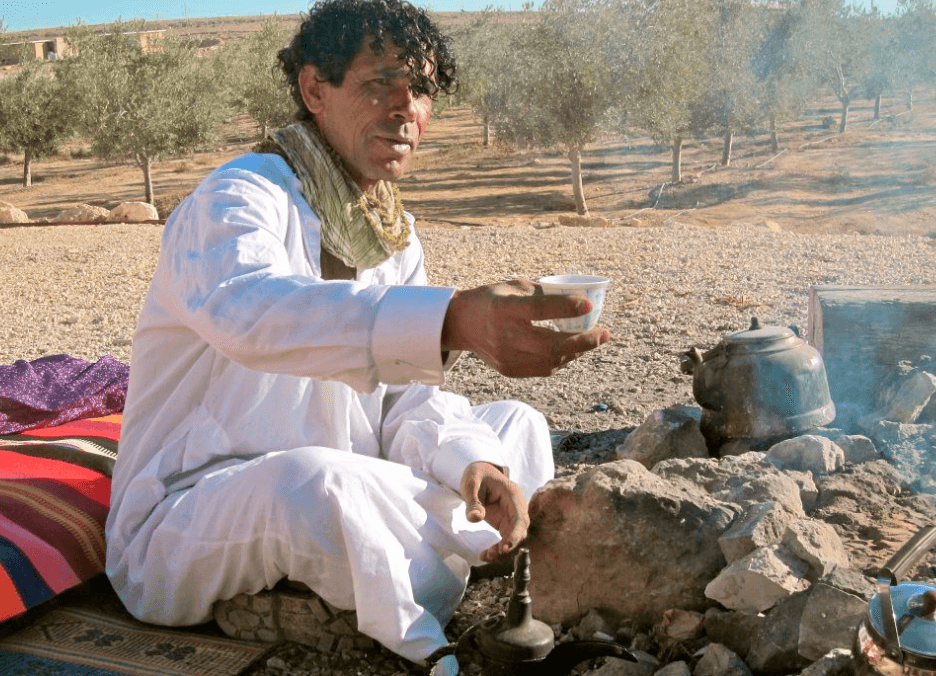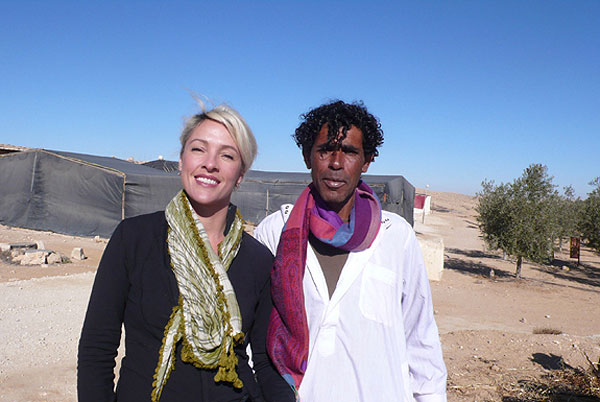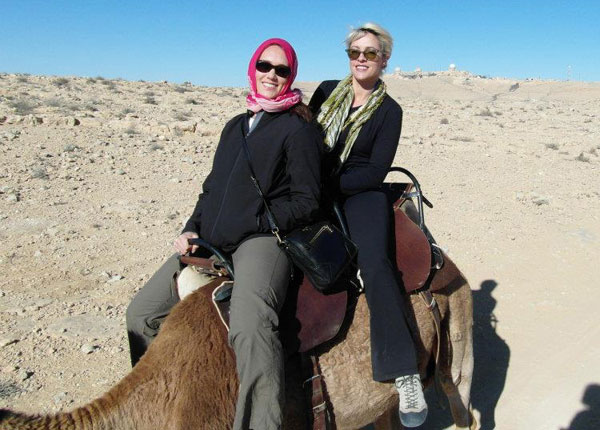As you probably know, I’m obsessed with scarves. If not, just search #scarftravels on Instagram. I make it a point to buy one from each place I visit and usually ask Lindsay to take an I-phone photo of me with the scarf on in each destination I visit—like my own personalized postcard. For example, here’s the Israel scarf photo (and the debut shot that inspired the whole #scarftravels series!):
Anyhow, I not only collect them, but also covet them: one lime-green scarf in the Negev Desert, during a 2011 trip to Israel, caught my eye.
In the U.S., it’s accepted and even encouraged to compliment someone’s outfit or accessories. In other cultures, complimenting a piece of clothing or jewelry can result in surprising (sometimes awkward) situations. Luckily, this scarf-complementing situation had a beautiful ending. And with all the heavy news surrounding the Mohammad, I’d like to share a positive story about another Mohammad, the Bedouin camel farmer.
Tea time took on a whole new meaning for me as I waited for my nana (pronounced na-na which means ‘mint’) tea to be made by Mohammad (in photo below) on the Noam Bamidbar Farm. I learned a valuable lesson Gandhi would have approved of.
During my travels in Israel, I had vaguely heard about the Bedouins—a nomadic tribe who lived off the land in the Negev and Sinai deserts of the Middle East for more than 7,000 years. Now many of the 160,000 Bedouins in Israel are semi-nomadic farmers like Mohammad or live in permanent urban settlements. (Reuters)
Mohammad was wearing a beautiful lime green tasseled scarf and I gestured to him I liked it. He didn’t speak much English, but apparently he knew what I meant.
With no pomp and circumstance, he walks up to me and hands me his scarf and returns to his tea making – like it’s an everyday occurrence for him to give a stranger the clothing off his back! Although the scarf smelled like camel and campfire, it was the best scarf I’ve even been given because of his instant reflex of generosity.
All I could do was repeat, “Toda, Toda” (phonetic pronunciation for ‘thank you’ in Hebrew) over and over to him.
Taking inspiration from Gandhi’s quote, ‘If the whole world gave an eye for eye, we’d be blind’, I decided to adapt the Old Testament teaching and twist it around a bit.
Rather than an eye for eye, why not a scarf for a scarf?
I turned to my friend Lina, who had lived in Israel previously, for advice. I was still unsure if he would even like a rather girly, pink and purple scarf.
She said, “Of course, he’ll like it!”
I shyly unraveled my scarf and gave it to him. He accepted with a grin and spark of joy in his eyes.
It was an incredible moment of shared humanity (and #scarftravels swapping)—despite my cultural ignorance*. And I always experience a warm fuzzy feeling towards the generous Bedouin camel farmer whenever I don the lime green scarf from the Negev Desert.
*Although I didn’t know this at the time, if you compliment an item in Middle Eastern cultures, that means you want it. The receiver of the compliment is then obliged to give it to you.
Noam Bamidbar Farm also offers camel rides for $15 for 30 minutes, farm stays in an ornate Khan (Bedouin-style tent) for around $30 a night with a full Israeli breakfast and overnight camel treks into the Negev Desert for around $275 per person.





 Subscribe to our email to get the latest news, travel tips, tricks of the trade, and our most recent posts delivered straight to your inbox monthly.
Subscribe to our email to get the latest news, travel tips, tricks of the trade, and our most recent posts delivered straight to your inbox monthly. 